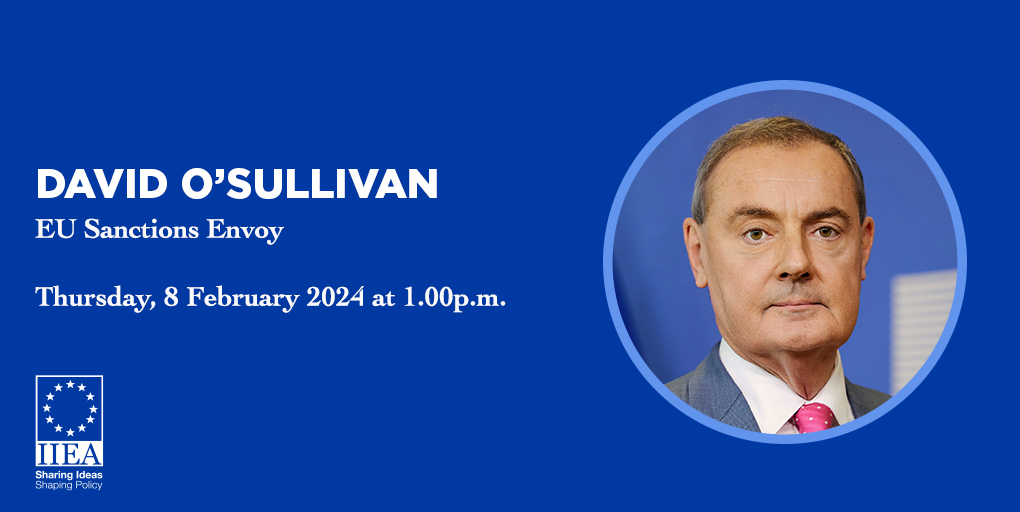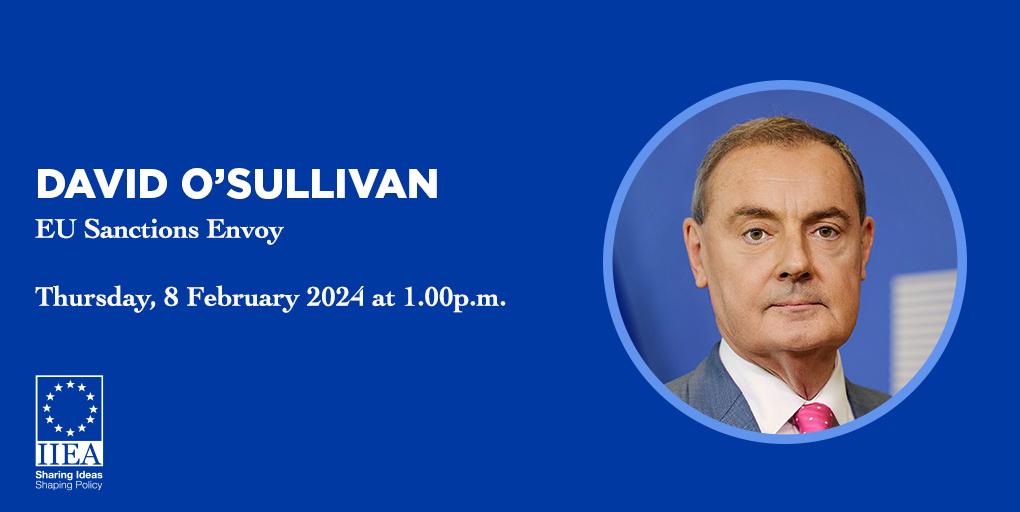Sanctions Against Russia – Going Global

Following Russia’s illegal and brutal invasion of Ukraine almost two years ago, the EU, together with partners from the G7+ coalition, has adopted several packages of unprecedented sanctions against Russia. The main objective of these sanctions is threefold: 1) to provide Ukraine with a key military advantage by depleting Russia from accessing dual-use and advanced technology to manufacture cutting-edge weapons, 2) to degrade Russia’s ability to finance its war of aggression, and, 3) to cripple the Russian industrial complex in the medium-to-long-term. In this context, the EU Sanctions Envoy was appointed in January 2023 to reach out to third countries and maximise the impact of EU sanctions against Russia by ensuring that sanctions are implemented fully and effectively. In his address to the IIEA, David O’Sullivan reflects on the objectives of these sanctions and his role as EU Sanctions Envoy so far.
About the Speaker:
David O’Sullivan took up his role as EU Sanctions Envoy in January 2023. Prior to this, he was Director General of the IIEA. Before working at the IIEA, he joined the Brussels office of the law firm of Steptoe and Johnson LLP as a Senior Counsellor (2019-2022). David O’Sullivan served as Ambassador of the European Union Delegation to the United States from November 2014 until February 2019. Prior to his appointment as Ambassador, he was the Chief Operating Officer of the EU's diplomatic service, the European External Action Service (EEAS). He previously held a number of senior positions within the European Commission, including Director General for Trade (2005-2010); Secretary-General of the European Commission (2000-2005); and Chief of Staff to Commission President, Romano Prodi (1999-2000). Before joining the Commission, he started his career with the Irish Department of Foreign Affairs (1977-1979).

